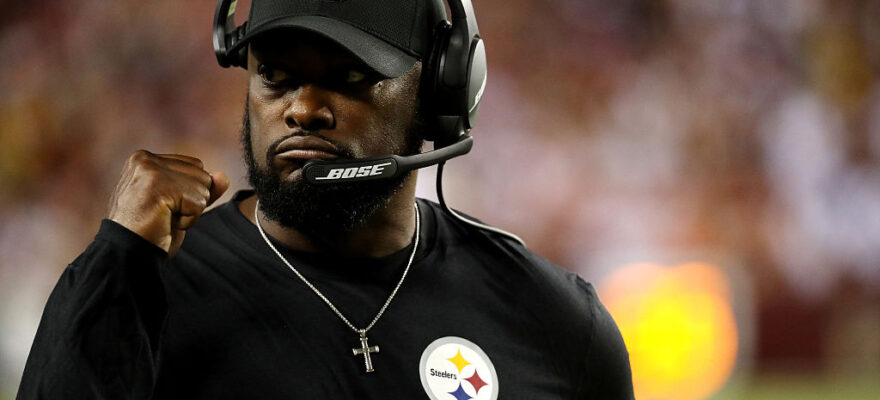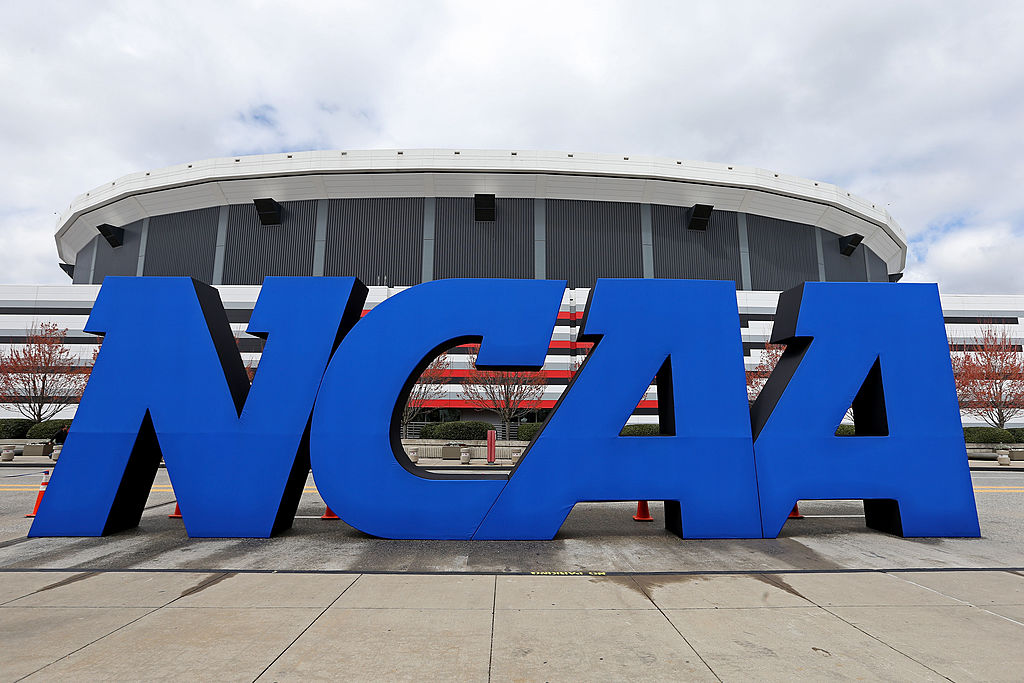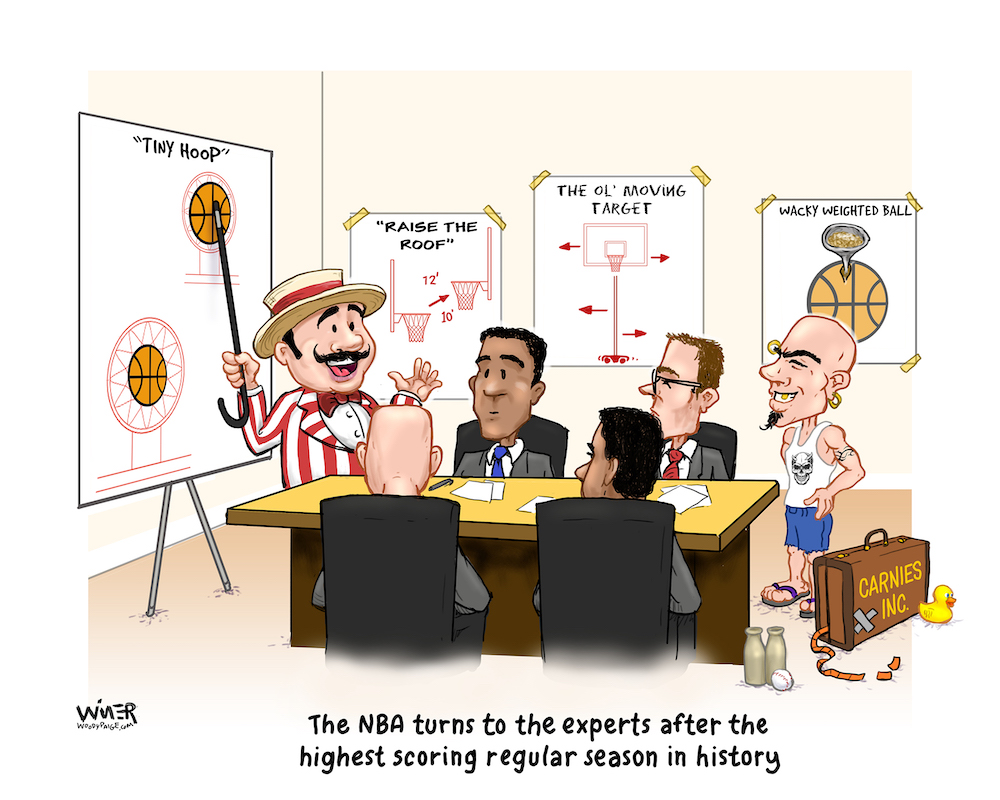The following is a hypothetical look at the future.
To make clear: I think it’s the way it should be.
This is not tsk-tsk hand-wringing.
Sports leagues and teams, and even colleges, are entering into mutually beneficial promotional partnerships with sports books and wagering sites. The action is part of the action.
More than ever, there should be nothing wrong with coaches making decisions based on a desire to reward the fans who bet on their teams.
In fact, it should be encouraged.
Here’s a hypothetical example: It is the final stages of an NFL game. The New York Mammoths, favored by 7, lead the Chicago Lumberjacks 24-20 and have just made a first down on the Lumberjacks’ 9-yard line.
The Lumberjacks are out of timeouts.
The Mammoths can do three kneel-downs, and the game would be over.
Instead, they run the ball.
There are no Nervous Nancy lectures about a possible fumble and a replay of the Miracle at the Meadowlands.
On third down, the Mammoths score on a nifty 4-yard sweep. They were playing more to accept a touchdown if it happened than acting as if it was a must, but it added to the final margin. That’s the protocol. Play on. Not pour it on. Play on.
The Mammoths win 31-20 and cover.
Coincidentally, the total of 51 is “over” the line of 45.5, but that’s not the important issue because betting either side of that isn’t necessarily pulling for one team or the other.
The winning coach, if asked why the Mammoths didn’t just kneel and accept the 24-20 decision, says: “If we could, we wanted to reward those who bet on us.”
He doesn’t insult anyone by pretending not to know the spread.
In fact, he might not even be asked about it because by then — whenever “then” is — it’s the accepted sports reality.
But if he is asked that, he is answering in a home stadium that a bit earlier was filled with fans and has a Sam’s Sports Book Lounge on the Club Level and wagering kiosks spread around the main concourse. He’s talking about a game that was on network broadcasts with more sportsbook ads than beer ads.
Arguably, the most fun place to be watching a finish like that is a sportsbook — whether traditionally in Nevada, or now in the other states that have legalized sports wagering. That came in the wake of a May 2018 Supreme Court decision that struck down the 1992 Professional and Amateur Sports Protection Act and left legalized sports gambling up to the states.
Once crowds are allowed to return, more fans than ever before in the stadium or arena will have action on the games … and the leagues will be fine with it. As they should be, with the disingenuousness of the past shoved aside. Action always has been part of the deal. Now it’s more open.
I’m not saying this is new: Yes, even in the days when the football and basketball wagers were made on the phone to “The Man,” or placed at the barber shop, seemingly bizarre events or casual decisions have decided the fate of wagers.
It could be a late interception and return — a pick 6.
It could be a guard dribbling out the clock … or taking and making the uncontested 18-footer at the buzzer.
When that happens, the sportsbook explodes. Wagers given up on suddenly are winners. Seemingly winning wagers become losers. Those holding them grouse about the folly of touching the money, or of woulda, coulda, shouldas.
It’s actually kind of fun to watch and listen … as long as you’re not on the wrong end of things.
Change the mentality in those situations.

What you owe the fan watching in the Sportsbook Lounge on the stadium’s club level — and those are coming to stadiums and arenas — is playing on until the final buzzer. Go to the hoop or take the jumper as long as there’s time on the clock. And don’t apologize for it.
You’re not second-guessed or doubted if you follow that New Normal template.
In football, the losing coach is a jerk if he refuses to shake your hand because, he claims, that late score was gracelessly rubbing it in. There are no orange slices in the NFL.
Secondarily, it’s fascinating how fast the leagues’ attitude about being associated with gambling has changed since the Supreme Court decision — and probably a bit sooner than that, once the legalization of sports gambling appeared to be inevitable.
The first concession came when leagues embraced fantasy sports partnerships.
In Colorado, for example, the legalization of sports gambling finally came early this year, and both the Broncos and Colorado Buffaloes have sportsbook sponsors.
Not that long ago, leagues and the NCAA acted (that’s the key word … “acted”) horrified if there was any link to gambling. Right, Pete? In the late 1980s, Oregon athletic director Bill Byrne (later at Nebraska and Texas A&M) successfully pushed for a state Sports Action lottery game tied to NFL games, calling for a minimum of three games on small-change parlay tickets. The revenue was ticketed to help athletic departments pay for scholarships, including for non-revenue sports.
The NFL’s reaction was transparently fake horror. It wasn’t as darkly funny as Captain Renault’s exchange as he shuts down Rick’s Cafe in “Casablanca.” (“I am shocked, shocked to find that gambling is going on in here.” … “Your winnings, sir.” — “Oh, thank you very much.”)
But it was just as disingenuous, given that a significant factor in the NFL’s skyrocketing popularity was gambling. Right, I was going to bribe an NFL quarterback to win a $10, 4-team parlay ticket I bought at the 7-Eleven in Beaverton?
But the NFL’s sanctimonious lobbyists got Congress to pass that 1992 law, outlawing sports wagering while grandfathering Nevada, Oregon and Delaware — the states with sports gambling at the time. When covering the NHL, I noticed that Canadian provinces also had similar lottery-based, parlay-ticket wagering.
Others also overreacted, including national sportscasters who objected to Sports Action because its payoffs under a pari-mutuel format were lower than in Nevada. NBC’s Pete Axthelm, who had been known to place a sports wager, came to Portland and interviewed me for the Sunday NFL pre-game show.
I salute the Supreme Court decision — mainly because it was a long overdue acknowledgement of reality — and what has followed.
As part of it, let the coaches and players be conscious of winning wagers for their fans.
About Terry: Terry Frei is the author of seven books. His novels are Olympic Affair and The Witch’s Season, and among his five non-fiction works are Horns, Hogs, and Nixon Coming; Third Down and a War to Go; and ’77: Denver, the Broncos, and a Coming of Age. Information is available on his web site, terryfrei.com His woodypaige.com archive can be found here.
More from The Woody Paige Sports Network:
- Woody Paige: That time I played blackjack with Michael Jordan in Monte Carlo
- ‘Most losses in 2020’ prop bet offers NFL bettors huge value
- It’s time for the NFL to go to a limited bubble approach
- Woody Paige: Have the Broncos finally learned how to close out games?
- Ignore the Polls – ranking college football teams this season is pointless
- Woody Paige: Broncos need Drew Lock to prove he’s THE guy

















